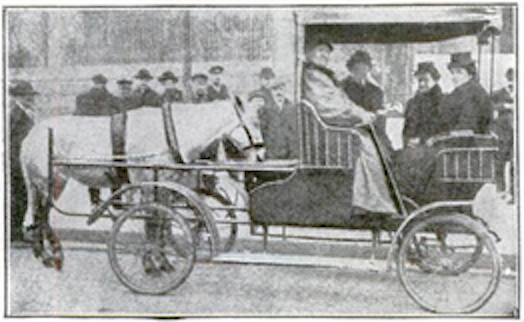Authors: proper planning is not procrastinating

I got some interesting responses to yesterday’s list of what tasks to do for your book and in what order. One editor’s response on LinkedIn was typical:
I’m fascinated by this list. It seems incredibly counterintuitive to me. Spending time on a title, subtitle, marketing copy, and worrying about who your editor might be before even beginning to write seems like the pit of procrastination from which few will escape! Plus, 99% of the time, everything you’ve decided on will change by the time you’re actually done with the book. I don’t think I’ve met a single author who kept their title and subtitle all the way through.
Does this editor have a point? Did I put the cart before the horse?
The counterintuitive reason to decide some things early
Writers often come up with the best title through the writing process. So why try to settle it early?
You don’t need marketing copy until the book is ready to launch. So why write it first, before you write anything else?
Why would you connect with an editor before you’ve even written any chapters?
The answer becomes clearer when you realize that writing a book consists of two basic tasks:
- Deciding where you are going.
- Taking steps to get there.
If you just start writing without knowing who your audience is, what your main idea is, and what your differentiation is, you’re wasting your time. Sure, you can work those thing out by writing — that’s what pantsers do — but why not approach the problem head-on?
Working on your title, subtitle, and marketing copy enables you to define the project and make promises about what you will deliver. It sets a destination for you to aim at.
Figuring out this on your own is difficult. That’s why I recommend working on it in an idea generation session. And in such a session, an experienced developmental editor is a big help.
You may very well change your title and emphasis along the way. But it’s a lot easier to go from something to something better, than to go from nothing to perfect.
If you think you’re not working on your book unless you’re writing, you’ve made a big error. You’ve shortchanged the planning and research work that makes writing effective and efficient. Proper planning is not procrastination, it’s avoiding waste.
Which kind of book do you think is going to be more effective?
A mass of written content shuffled around and banged together until it sort of coheres into a book?
Or a carefully planned set of chapters, each answering a specific question that a reader might have, connected together to take the reader on a journey through learning and insight?
You can think of planning as procrastination to avoid writing. But writing without planning is basically moving about at random. And that will never get you anywhere interesting.
Fascinating post and response.
My two cents: You’re both right.
In theory, authors spend extensive time planning. Sure, they’ll make changes, but they tend to be peripheral ones. This is why folks like you and me don’t waste time rewriting or changing our books’ core premises.
In reality, the editor is right. Newbies don’t plan. They just write and experience problems midway and at the end of their journeys.
Hello, Theory. Meet Practice.